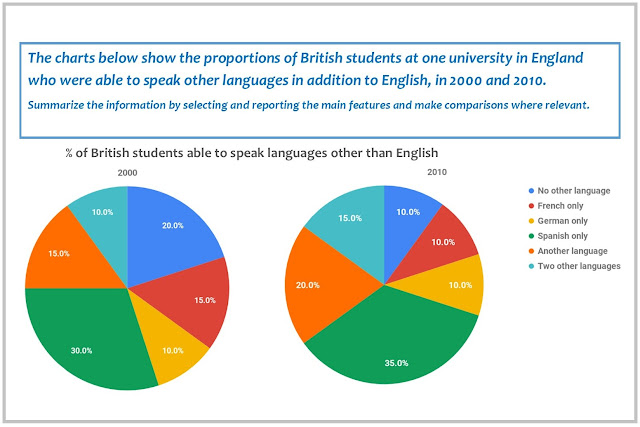Too much is spent on animal protection - a counterintuitive but convincing IELTS essay
Some people think that in IELTS essays there is the "right" opinion, that is either the opinion the test makers have in mind (which you are supposed to somehow divine) or the socially accepted opinion that sounds righteous (e.g. we need to prevent climate change). This is not true. Any opinion works as long as it's argued well.
I want to share an essay that argues a very counterintuitive point of view - that too much time and resources are spent on protecting wild animals. The essay is written by my student Nastya. "You came up with very convincing arguments on the point of view I didn’t want to be convinced in," was my comment on the essay. She probably doesn't even support this point of view herself, but this is irrelevant. All that matters is it's a very logical essay that would get a very high score.
✽✽✽
"Some people say that too much time and resources are spent on the protection of wild animals and birds. To what extent do you agree or disagree?"
By Nastya Chadaeva, IELTS Writing 8-8.5, class of 2021
"Protecting wild fauna has recently become a topical cause for a multitude of charitable as well private and governmental organizations. Even though this idea seems righteous at first glance, I stand with those people who believe that the amount of time and resources invested therein is excessive.
First, wild animals and birds are for the most part non-essential for humankind. These species are neither consumed as food on a large scale nor used as raw materials in mass production of goods. Indeed, their value is minimal to most peoples who no longer hunt for food and clothing but rather raise cattle and poultry. Since wild species are not farmed in curated conditions, their numbers are, naturally, far smaller than those of the domesticated ones and, therefore, could be disregarded altogether rendering extensive investment pointless.
Second, because of investment into wildlife protection the natural process of evolution could be disrupted. Current biodiversity, being the result of the centuries-long process of evolution, could be heavily damaged by artificial preservation of species that are not meant to survive. For instance, should the scientific efforts in reviving such an extinct predator as the Tasmanian tiger be successful, the species it preys on will be endangered. In the long run, such interference might threaten whole ecosystems, escalating indefinitely and, ultimately, threatening the survival of humanity, which means spending substantial resources is superfluous.
To conclude, I maintain that the amount of time and resources dedicated to saving wild fauna exceeds the necessary mark. For one thing, wild animals and birds are non-essential for the population of the planet, as they are neither used to feed large numbers of people nor exploited as crude products. Moreover, interference into evolutionary processes through protection might threaten humanity as a whole rendering such protection excessive."
First, wild animals and birds are for the most part non-essential for humankind. These species are neither consumed as food on a large scale nor used as raw materials in mass production of goods. Indeed, their value is minimal to most peoples who no longer hunt for food and clothing but rather raise cattle and poultry. Since wild species are not farmed in curated conditions, their numbers are, naturally, far smaller than those of the domesticated ones and, therefore, could be disregarded altogether rendering extensive investment pointless.
Second, because of investment into wildlife protection the natural process of evolution could be disrupted. Current biodiversity, being the result of the centuries-long process of evolution, could be heavily damaged by artificial preservation of species that are not meant to survive. For instance, should the scientific efforts in reviving such an extinct predator as the Tasmanian tiger be successful, the species it preys on will be endangered. In the long run, such interference might threaten whole ecosystems, escalating indefinitely and, ultimately, threatening the survival of humanity, which means spending substantial resources is superfluous.
To conclude, I maintain that the amount of time and resources dedicated to saving wild fauna exceeds the necessary mark. For one thing, wild animals and birds are non-essential for the population of the planet, as they are neither used to feed large numbers of people nor exploited as crude products. Moreover, interference into evolutionary processes through protection might threaten humanity as a whole rendering such protection excessive."
✽✽✽
Over the years of teaching IELTS, which is about 10 in number, I've come to appreciate essays that argue unusual points of view. They stand out. They are interesting. They give me a rare chance to read for real and to forget about correcting mistakes. This is an example of such an essay. Did you appreciate it?
Image credit: Photo by Swarnavo Chakrabarti on Unsplash





Although the first paragraph deserves credit, I feel the writer should've needed to elaborate on the point when she said the bringing back the tasmanian tiger could put the survival of the humanity at risk, which raises the question of 'HOW'?
ReplyDelete